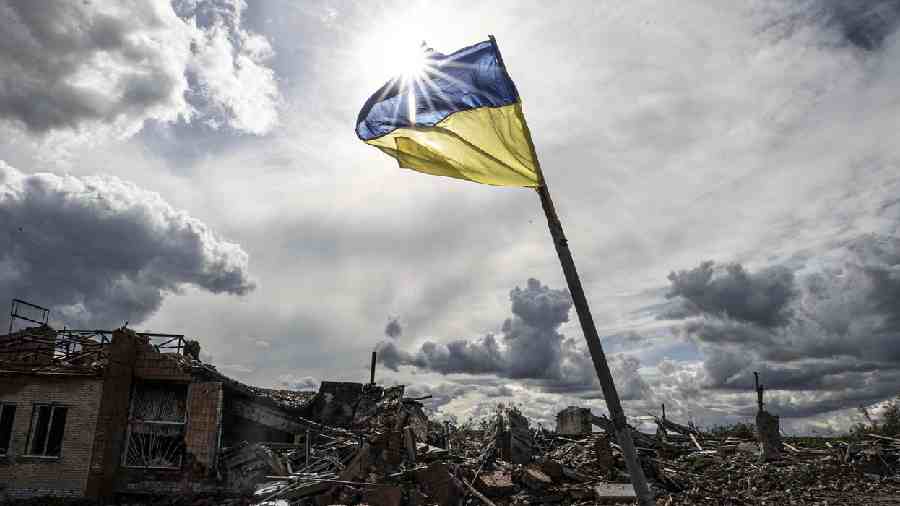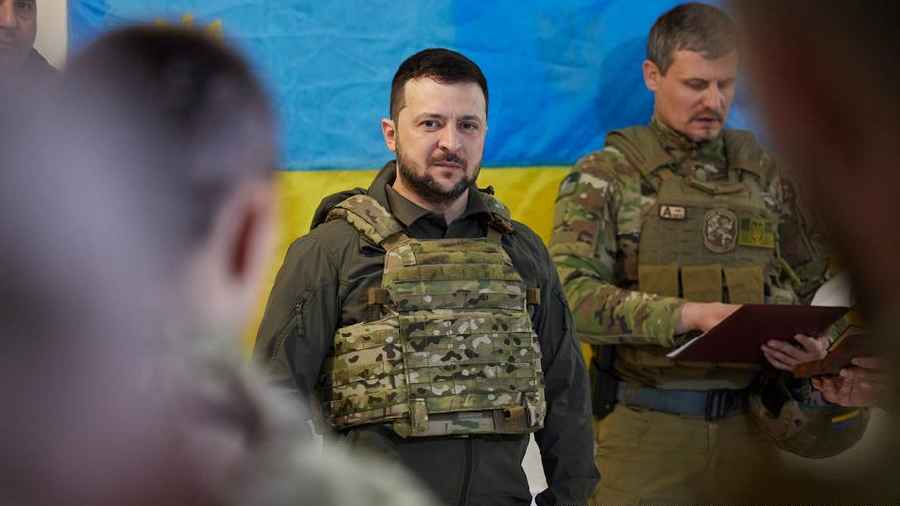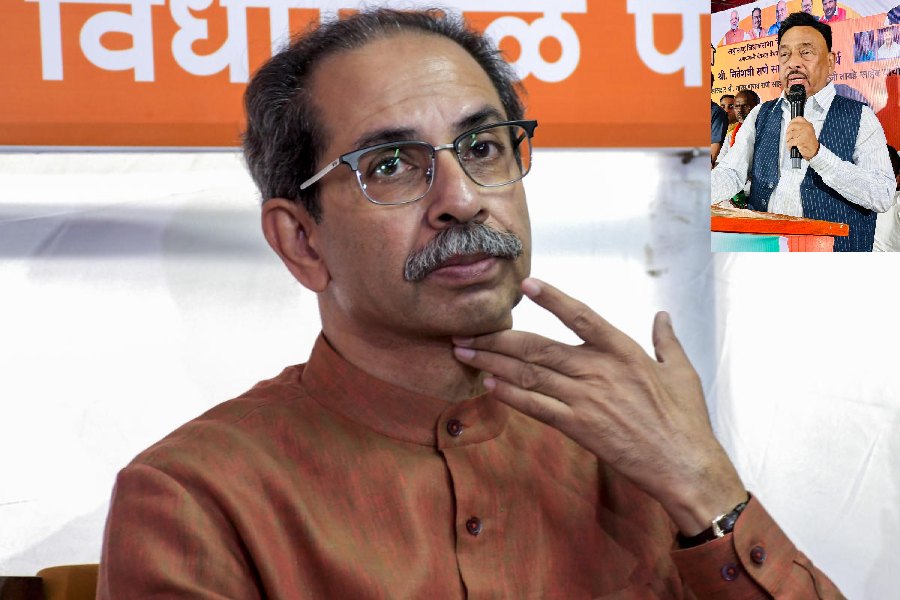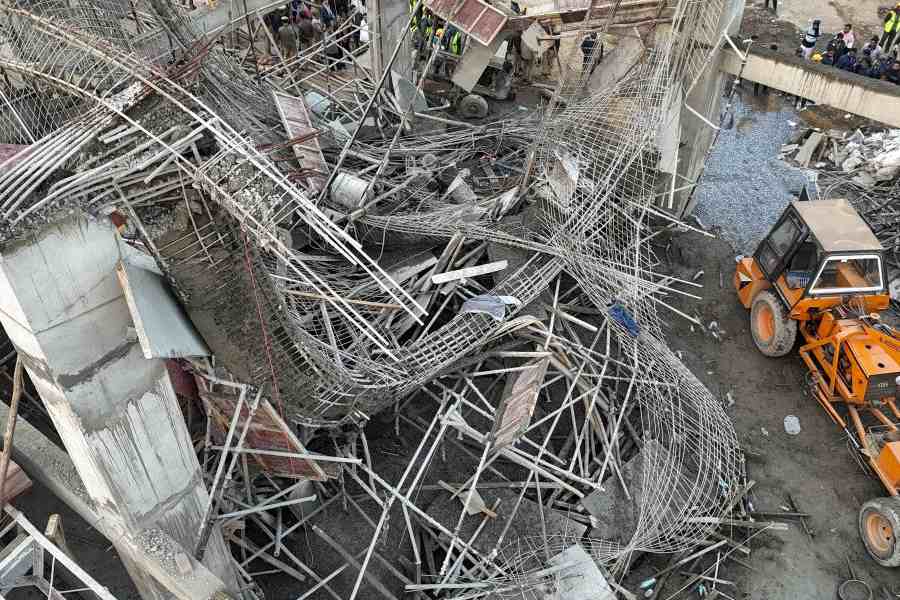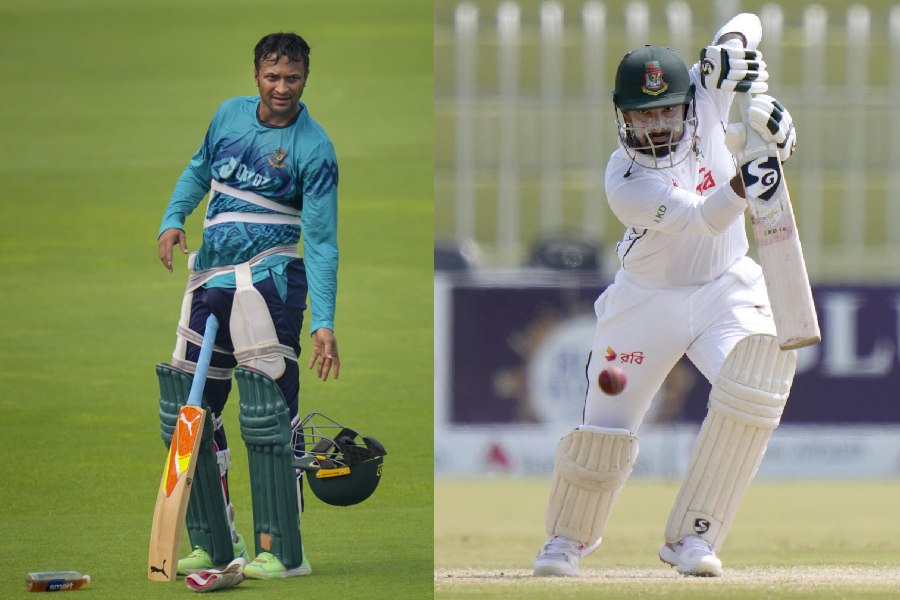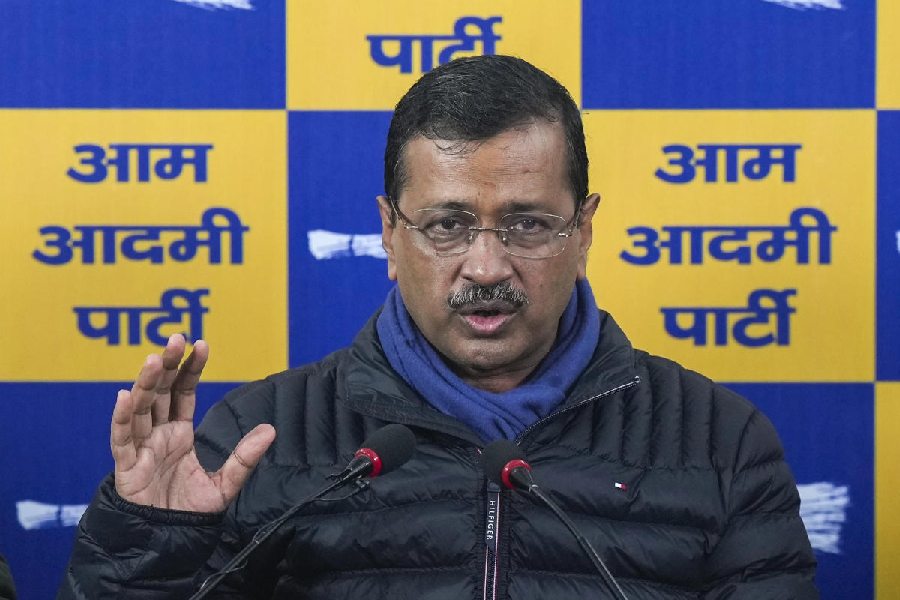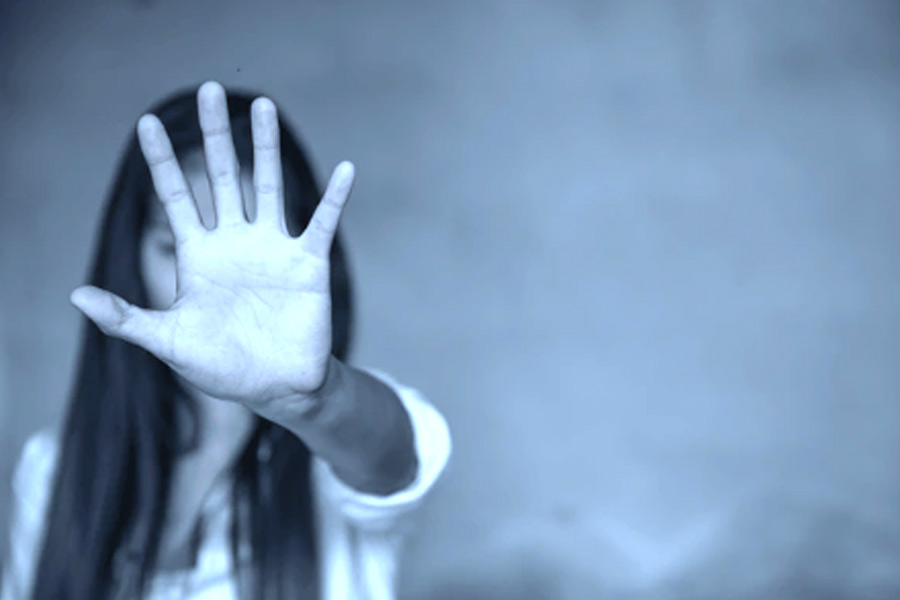Just over a year ago, Yulia Bondarenko’s days were full of lesson plans, grading and her students’ seventh-grade hormones. When Russian missiles shattered that routine and Russian troops threatened her home in Kyiv, Ukraine’s capital, Bondarenko, 30, volunteered to fight back, despite her lack of experience, the grave risk to her life and Ukraine’s apparently impossible odds.
“I never held a rifle in my hands and never even saw one up close,” Bondarenko said. “In the first two weeks, I felt like I was in a fog. It was just a constant nightmare.”
For weeks, she had followed the ominous news of Russian troops massing on Ukraine’s border and decided on February 23 to enlist as a reservist. The next day, the largest land war in Europe since World War II began. As explosions shook Kyiv, Bondarenko took the subway to report for duty, uncertain the recruiting office would take her without finished paperwork or a fitness exam.
But in the chaotic swirl of volunteers, officers asked no questions. They handed her a rifle and 120 bullets, and assigned her to a unit expecting to fight in urban combat if the Russian Army broke into the capital. She was only one recruit in a huge influx of volunteers who swelled the size of Ukrainian forces — from about 260,000 soldiers to about one million today — and whose lives were transformed by the war.
In a recent interview, Bondarenko recalled the intense stress of those early days. Unaccustomed to the sounds of artillery, she said, she expected to be hit after every blast. She thought she would die. Step by step, she learned how to be a soldier. Fellow volunteers showed her how to load, aim and fire her Kalashnikov rifle. They practised trench fighting and other tactics.
During the weekslong battle for Kyiv, Bondarenko and about 150 other volunteers, almost all men, lived in a shopping mall, rotating through shifts at checkpoints in the city. She and two other women changed in a bathroom away from the men.
It was so cold at night she slept hugging one of the other female soldiers. Slowly, sleeping bags, mats and warm uniforms turned up — and the unit eventually made it to a barracks.
Not all of the new recruits needed training. Eight years of fighting against Russia-backed separatists in eastern Ukraine has schooled a generation of Ukrainian soldiers — about 500,000 — in trench warfare on the plains, the type of combat dominating the war today. Many veterans returned to active service when the full-scale invasion began.
In the weeks after Ukraine fended off Russia from the capital, and as Russian troops retreated in the spring, the fighting shifted to the east. Bondarenko was offered a chance to resign or take a position in a desk job or as a cook.
She overcame her fears and chose to stay with the infantry, living in the barracks and training for campaigns to come.
Like other recruits without experience, Bondarenko learned on the job: how to find trip wires and explosive traps, to duck for cover from shells, to provide battlefield first aid.
At first, she worried about her abilities. Bookish and shy, she never had any interest in the military, and knew nothing of weapons or wars. But on patrols and at the firing range, handling supplies and learning tactics, her confidence grew.
“It was pleasant when the guys said, ‘It’s working out with you,’” she said. “And they said, ‘I would go into battle with you.’”
Her brigade was stationed in a village south of Kyiv, where soldiers formed relationships with residents: They frequented a shop for snacks, and Bondarenko grew close to a local maths teacher.
But at spring’s end, they had to say goodbye. They were heading towards the northeastern Kharkiv region, towards the front.
In the northeast, the unit came under near-constant Russian shelling over the summer. Bondarenko helped handle logistics and supplies to keep Ukraine’s forces fighting.
Patriotism, and learning the history of Moscow’s repression of Ukrainians, had motivated her to enlist in the first place, she said.
She had moved to Kyiv from a village in central Ukraine for university studies, arriving shortly before mass street protests toppled a pro-Russia President in 2014. During the political awakening that followed, she re-evaluated her family’s history and found injustices from Russia’s long rule in Ukraine.
During Soviet times, she said, a hydroelectric dam had flooded her village, Khudyaki, but the authorities did nothing to relocate residents. Villagers had to salvage what they could from their homes and rebuild on higher ground.
“When I became older, I understood how history was taught incorrectly in schools,” she said.
Even as green new soldiers swelled its ranks, Ukraine adopted dozens of new, western-donated weapons. By the fall, it had gained strength. Ukraine counterattacked and, upending long-held ideas of the balance of military force in Europe, defeated the Russian Army on the battlefield in two successful offensives, in Kharkiv and Kherson regions.
Over the New Year’s holiday, Bondarenko was given a respite. She returned to Kyiv, where she got to indulge in joys from before the war: a new haul of books delivered to her apartment; coffee with friends; time with her sister and 4-year-old niece.
She also used her leave to visit her 67-year-old mother, Hanna Bondarenko, at her village in central Ukraine, where she had grown up speaking Ukrainian in contrast to the Russian spoken in Kyiv’s cafes. But her anger at Russia had simmered as Moscow fomented fighting over the past eight years, and she had long switched to speaking Ukrainian in public.
When Russia invaded, her mother said, she at least felt a sense of relief that her daughter would not be drafted. “I was happy I didn’t have a son because I didn’t have to worry about him going off to war,” she said. “I never imagined my daughter would sign up.”
Her daughter said she tried to stave off some feelings while her unit was deployed. She feels guilt about her mother’s fears for her, and misses teaching and her boyfriend. She keeps a box of letters from former students at home. “When I am away on the base or in the field, I try to shut down emotionally,” she said. The backpack she carried held a small part of her life as a teacher: books. Some were children’s books that she sometimes read to cheer up fellow soldiers.
But she said that she needed to serve her country, meaning that, before long, she had to make another round of goodbyes. Parting with her boyfriend in Kyiv, she said, she thought of his daily fears and their hopes for the future. The relationship, she said, “shows me that even in the dark, there can be light”. Of the many volunteers she has met over the past year, many were deployed to eastern Ukraine, where fighting is raging, and Bondarenko knows some who have been killed. She has not yet fired her rifle in combat, but if her platoon is sent to the front, she said, she feels ready to fight. “I am an infantry soldier now,” she said.
New York Times News Service

